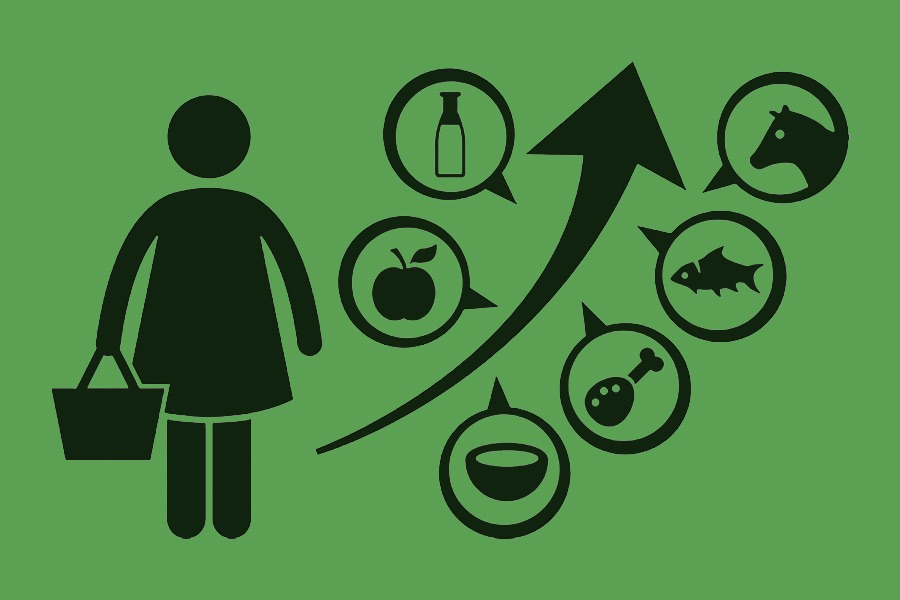
Published :
Updated :

Core inflation fired up over double-digit count for the first time in Bangladesh last August amid price spikes, especially as non-food prices rose significantly, officials said.
The core inflation rose to 10.57 per cent in August on a point-to-point basis from 8.66 per cent a month before, according to the central bank's latest statistics. It was 9.52 per cent in December 2022.
Currently, the Bangladesh Bank (BB) is measuring the core inflation by excluding food and fuel components from the consumer price index (CPI).
The central bank had taken a strong measure by announcing a plan for increasing the policy rate twice by October 2024 after calculating the latest core- inflation figures in its bid to cool the mercury.
Earlier on September 23 this calendar year, new BB governor Dr Ahsan H. Mansur disclosed the central bank's current inflation-combat plan at a press briefing at the BB headquarters in Dhaka.
As per announcement, the central bank raised the policy rate, also known as the repo rate, by 50 basis points to 9.50 per cent on September 25 in an effort to combat the inexorable inflation.
A policy-rate hike means banks under liquidity crunch will now have to pay more interest on loans taken from the central bank.
To manage liquidity more effectively, the BB also raised the upper limit of the policy- interest corridor. The Standing Lending Facility (SLF) rate rises to 11 per cent, up from 10.5 per cent, while the Standing Deposit Facility (SDF) floor rate moves up to 8.0 per cent from 7.5 per cent.
Talking to the FE, Mustafa K Mujeri, executive director of the Institute for Inclusive Finance and Development (InM), suggested the central bank continue its anti-inflationary drives until the inflation came under control.
"We need to further strengthen our measures to curb the inflationary pressure on the economy," the senior economist notes.
Mr Mujeri, also a former chief economist of the central bank, thinks it will take more time to contain inflation.
"Core inflation has a stronger relationship with the Monetary Policy Statement (MPS) than that of CPI," a BB senior official told the FE on Saturday while explaining the importance of the core inflation.
He also said higher costs of non-food items, particularly medicines, clothing and transportation, pushed up core inflation during the period under review.
The prime objective of computing core inflation is to separate out the components of headline inflation, officially known as general inflation, that are caused by non-monetary events as these price changes do not reflect the impact of underlying monetary-policy decisions.
"Higher depreciation of the Bangladesh Taka (BDT) against the US dollar has also contributed to rise in core inflation in Bangladesh," another central banker explains.
The BDT depreciated by Tk 10 to Tk 120 from Tk 110 each US dollar from May to August this year, he notes.
The central banker, however, hopes the situation is improving gradually as the pressure on the country's foreign-exchange market is easing because of higher inflow of remittances and lower import- payment obligations.
"We expect that the core inflation along with the CPI will ease further in the coming months as the central bank is working on the issue seriously," the central banker says.
Bangladesh's inflation as measured by consumer price index eased further to 9.92 per cent in the month of September on the point-to-point basis mainly due to lower prices of both food and non-food items.
The inflation dropped 58 basis points to 9.92 per cent in September this calendar year from 10.49 per cent a month before. It was 9.72 per cent in June 2024, according to the Bangladesh Bureau of Statistics (BBS)'s latest data.
siddique.islam@gmail.com


 For all latest news, follow The Financial Express Google News channel.
For all latest news, follow The Financial Express Google News channel.